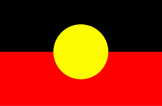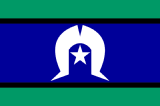Baydon runs Aboriginal Cultural Awareness Workshops and has another job teaching Aboriginal and Torres Strait Mental Health First Aid which takes him around the country. Emily is an Occupational Therapist which helps looking after Foster children.
Despite their busy schedules, Baydon and Emily are foster carers to a 10 year old and have just started to commence respite care.
A proud Dharug man Baydon and his family has been on Dja Dja Wurrung country (Bendigo) for all of his life. They signed up to become foster carers because they knew they had room in their homes and hearts.
He was placed with Baydon and Emily before they were even accredited and they set it up as a kinship placement so he could be placed with them. That young man is still with Baydon and Emily and is now in foster care since their accreditation.
“I wouldn’t change anything now. He is part of our lives. He knows his situation and he is stable, the placement is going well. Most of the hard work is done it took a good 6 months before he settled into a routine.”
Baydon and Emily don’t have children of their own so the set up and early days of the placement were both confusing and expensive. Baydon says they have had to dig into savings as they believe all children should be given the same opportunity.
“You expect that it will be well supported but the allowances might cover some food and a portion of bills that’s about it. Everything else is out of pocket.”
“It took weeks for the care allowance to come through but the local Aboriginal Co-operative was able to assist with food and fuel vouchers which helped as well as some furniture for the bedroom. “If you add it up I guarantee the reimbursement might just cover food and some bills.”
“He had never had a birthday party so we wanted to throw him one as he was turning 10. He’d only been with us and in this community for a few weeks so he hadn’t a lot of connections yet so we made sure it as full and gathered neighbours and family to give him a special day at a roller-skating rink. We didn’t care what it cost for him but that was $250 just to hire the venue, then presents and food, and that that point we’d had no money coming in.”
It took 7 weeks for the Carer reimbursement to come through.
“We shouldn’t have to ask for reimbursement on those costs. It is never a pro-active offer to cover costs and it can be uncomfortable asking for the reimbursement.”
“He came to us with a contact phone. Child Protection had issued him one to keep in touch with his siblings but it didn’t have a plan attached. So, we found the cheapest one we could at Aldi and got him set up on that monthly plan and when it came to seeking those costs we were refused. They said they wouldn’t cover it and queried it. It’s like $30 a month, it’s not a lot but now that’s our cost so another expense we have to cover.”
The siblings are all over the state but we do our best to maintain contact.
“We try to meet halfway but that means buying food and setting up an activity so they have something to do together. It all costs.”
“We love being carers and he is part of our lives, but things like navigating support for carers in the early days was tricky and time consuming. It’s all those things that could be better managed. The logistics and information. We did respite one weekend and had no idea the child needed an asthma preventer, that could be dangerous!”
"I’ve learned what worked for us and to advocate is in the way you word things as a carer. Once the kids are here you don’t have any bargaining power. ‘We’re changing the system every time you advocate as a carer. When they offer you the placement that’s your bargaining. We are open to ages 0-18 so any age. Now that they know he is stable we do get more calls to take on more children but at the moment we are at capacity. We also know that they can call it emergency respite care but it can end up a lot longer."
"Now it’s coming up to our boy’s 11th birthday and we will do all the presents etc. We make it special but we know that’s $300-400 out of our own pocket at a minimum and it all adds up."
“We want to do more recruitment and try to spread the work but it’s a hard sell. How do you tell people that you’re going to be spending more money.”
Emily and Baydon have found the difficulties to be finances but also the logistics and information.
“He does have the right therapy, sports, social interventions in place and he has his cultural support and connection care plans.These supports are what is needed ongoing to keep the placement stable."
But Baydon feels lucky he has the knowledge to advocate for himself the children in his care and the support of his wife to take on the role.
“The system is getting more and more kids, but we don’t have the carers to match.”
To support carers like Baydon and Emily, and provide the improved the conditions which will encourage more carers like them to put themselves forward, join the Care Allowance Campaign here: bit.ly/43IfBbJ


